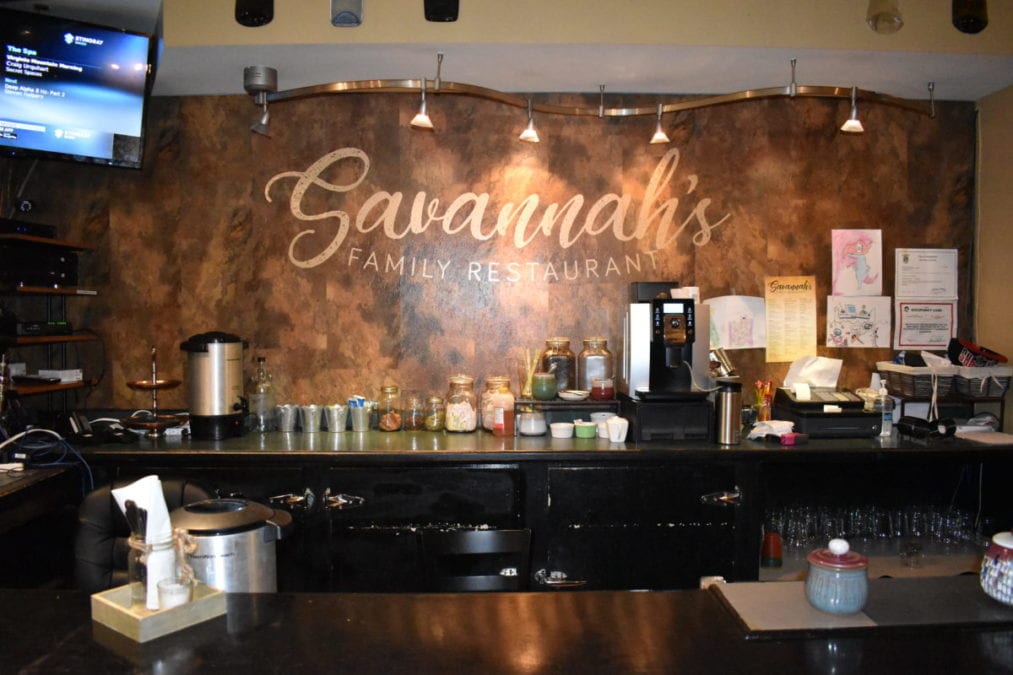The past 16 months have been a wild ride for the owners of Savannah’s Family Restaurant, one of the newest eateries in Yellowknife.
They opened on March 18, 2019 and wree forced to close because of the Covid-19 pandemic exactly 366 days later.
“We were a bit nervous. It was right during tax season,” said owner Savannah Perna. “When you’re a new business so much money goes out before you can start to make money. I thought, ‘We had a year, we were doing good and then bam! We had to close. Which was like ‘what?’”

Perna and her husband Mohamed Mohamed own the Franklin Ave. restaurant, which specializes in East African food.
For the period of just over three months when they were closed they tried to figure out how they could survive as a business.
They didn’t qualify for most federal or territorial loans and thinking about how they would pay their rent was a constant concern.
“Our landlord is amazing and told us to relax and not to stress to about the rent. I was worried and I was really scared. He was very patient. He was basically waiting it out with us, which was a huge burden for him,” Perna said.
She admits that the many weeks of downtime were a blessing in disguise because she could spend more time with her three children aged 3, 4 and 12.
“The restaurant is stressful. It was really nice to be at home with my kids, have picnics together and really appreciate each other again,” she said.
Eventually their application to the Canada Emergency Response Benefit was successful. In May, they applied to the Canadian Northern Economic Development Agency (CanNor), were approved and received assistance with their fixed costs like rent.
“If not for them I don’t know where we would be. Being so new and this is our sole income and with a young family.”
That helped them for May and June. And their landlord – about whom Perna is effusive in expressing gratitude – waived their April rent.
Her server and only staff member Mohamed Hassan managed to find another job until they reopened on July 5.
“I was worried if customers would even come back. To see them come back and be so genuinely happy and saying ‘I’m so happy you guys pulled through this.’ It was so amazing to hear,” Perna said.
Since then, business has been “decent” but still slower than before Covid and compared to one year ago. Perna estimates revenues are down by about 30 per cent compared to last July, though she jokes that she’s “bad with numbers.”
The lunch time customer traffic would be higher if more government offices were open, she said.
Capacity limits set under Covid health regulations also significantly constrain Savannah’s customer numbers.
“Our (capacity) is at 25 people for dine-in and it has to be distanced. Every other table is available. We have Xs on tables where people can’t sit. Our normal capacity is for 77 people. On our busier days we reach the 25 limit,” she said.
But while dine-in business has dipped, take-out business has jumped to a level above what they experienced even before Covid, and kept them on their toes.
“(It) increased by maybe 70 per cent. We had to learn how to juggle the takeout load plus the people dining in. We weren’t used to such high takeouts. But people in Yellowknife were really understanding and supportive. In the whole year and a half we’ve been open we haven’t had one cranky or mean customer.”
Perna has also noticed that the size of take-out orders has been larger than before Covid, with families buying more than they eat in one sitting, perhaps so they can have left overs for the next day.
Business might be slower than Perna would like, but it’s been steady enough that she hired a new person from Edmonton who will assist her husband in the kitchen as a sous chef. He’ll be able to start work on Tuesday when he finishes his self-isolation.
If a second wave of Covid reaches the NWT, she’ll deal with it as it comes.
“As long as the government helps us with a grant helping with our rent we’ll be okay. We don’t know what happens if there is no grant. We’ll have to see what the future holds. I don’t like to worry. I can’t control a pandemic. If I don’t get approved, I don’t get approved. I can’t force the government to give me a grant.”

